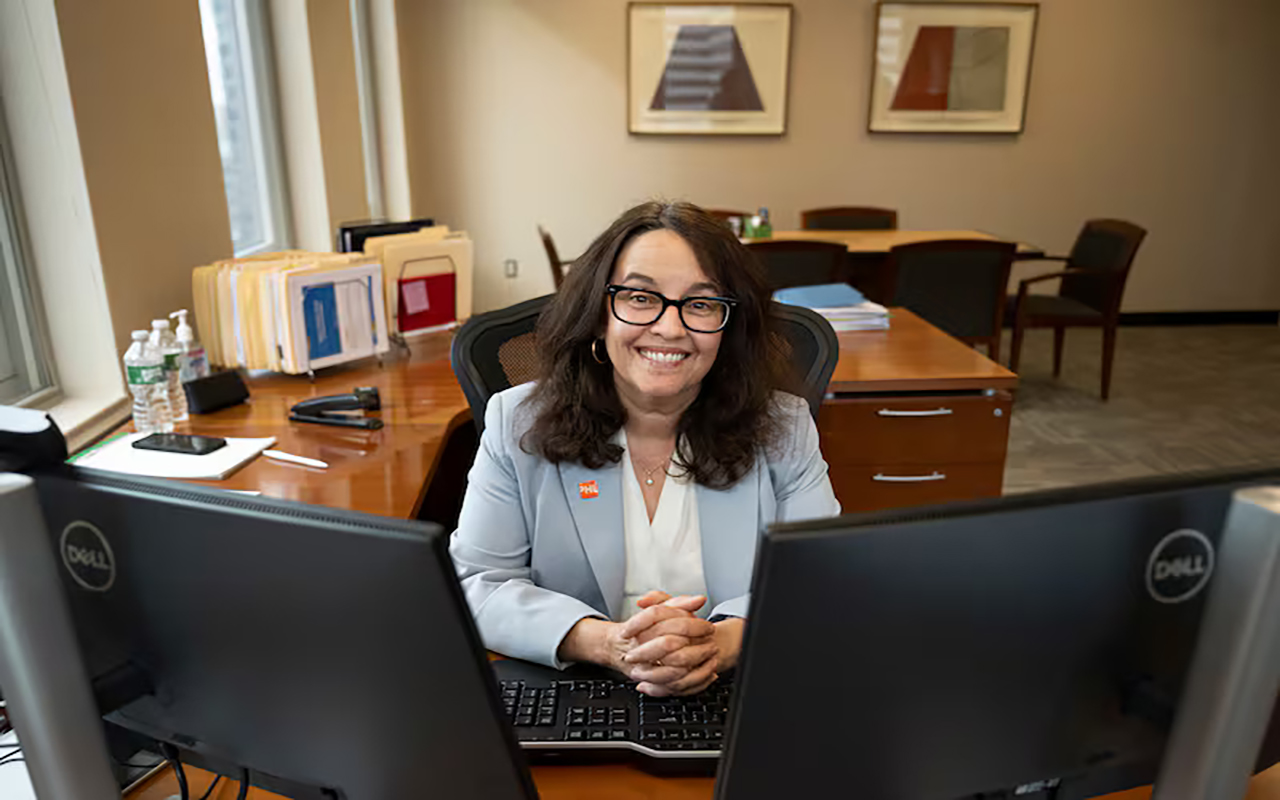
The dreamer who dared to dream
On May 14, Muniz will receive his undergraduate and masters degree from the University of Pennsylvania. Alongside fellow student Sade Oba, Muniz won the 2016…
It was January 2011 and a group of around 50 people — many of them undocumented — marched down Market Street for several blocks, demanding the approval of the DREAM Act, and the end of unjust deportations.
One of those walking in protest through Philadelphia was Alfredo Muniz, Mexican by birth, back then a freshman in the University of Pennsylvania (UPenn). At the time, he told the press that the stories of his fellow undocumented immigrants moved him to tears.
However, the story of the 23-year-old student — recipient of the 2016 President's Innovation Prize for his work geared at helping patients of Parkinson's disease — is not without its pitfalls.
In February 1994, Alfredo Muniz Sr., a native of Colima, Mexico, crossed the border into the United States. His wife and one-year-old Alfredo came along. The family settled in Houston, where the father got his first job at a junkyard, digging for spare parts amongst the rusty old cars. It was there that he taught himself how to remove and install car windows.
Today, Muniz Sr. is the proud owner of an auto glass shop.
“I have always looked up to my dad because, even though he didn't receive a full education, he always made an effort to educate himself," says Muniz sitting comfortable in a arm chair, with an air of calmness on his face.
With the tone of his voice and the simplicity of his words, it is easy to forget that the young man is about to receive his undergraduate and master's degree in Engineering and Applied Sciences, which he studied concurrently, from one of the most prestigious universities in the region.
However, it's quite clear that Muniz is passionate about academia. He would have to be, because Penn offered him a full ride so that he could pursue his aspirations, based on his outstanding performance in the High School for Health Professions and his fascinating tale of personal growth.
“The first time I realized I was undocumented was in high school. Houston is a driving city, and not only was my family too poor to afford a car, but I couldn't even get a license," Muniz recalls.
The wall standing between Alfredo and his dreams kept growing.
"First, I had to deal with my own mentality," he said. "My parents didn't even go to middle school, so they couldn't guide me through the academic path. On top of that, I didn't have access to a computer until I went to high school, because we couldn't afford one."
And then came the day when Alfredo's parents gave him a straight shot of truth: he couldn't go to college after high school. "Back then it even made sense to me. I wasn't even supposed to be in the country, so why should I be allowed to go to college?
However, there was hope in the political landscape. The DREAM ACT was starting to gain political traction, providing a way for Alfredo to move past his undocumented status.
RELATED CONTENT
Amid this ray of hope, it was Sade Oba — his high school classmate — who pushed Alfredo to dream big and apply for a scholarship at Penn. Upon his admission, the duo bonded even further in the institution's hallways leading up to their final joint venture: the creation of XEED, the project that would lead the team to receiving the 2016 President's Innovation Prize
“The idea was born as part of our senior design project," Muniz said. "At the beginning, we thought of creating an app-controlled robot that could move from room to room adjusting lights and temperatures."
However, responses to that idea were not favorable. Following an internship with PHC Lime Lab — a California-based design firm that works for companies like Apple and Beats Electronics — Muniz concluded that his true calling was to execute an innovative project that could also help people.
With help from professors Jonathan Smith and Thomas Castle, the existing project gave way to XEED, a sensor-based system capable of transmitting limb movement in Parkinson's disease patients to a mobile app through Bluetooth technology. The system can generate a data stream that health professionals and patients can use in their assessment of the disease.
“Parkinson patients don't have the right tools to track their own progress. Thanks to the gyroscopes and accelerometers located inside the sensors we can help them see the effectiveness of the treatment," Muniz says.
The impact of the idea, which is looking toward helping 500,000 patients across the country, made it an evident candidate for the 2016 President's Innovation Prize. Amy Gutmann, president of the University of Pennsylvania, says the project is at the vanguard of innovation, earning it the sum of $100,000 to invest in its development.
Three weeks before receiving the award, another — perhaps simpler — acknowledgement was given to Muniz: his first driver's license. Through the Deferred Action for Childhood Arrivals (DACA) program, the young immigrant is safe in the country where he has lived almost since birth.
Another recognition of his perseverance will come on May 14th, when he will graduate from an Ivy League university, an academic dream come true for any 23 year old with ambition.
However, the goal Muniz has currently set for himself is not in a corner office of a major corporation.
"Right now, my heart is set on helping people," he said.










LEAVE A COMMENT: